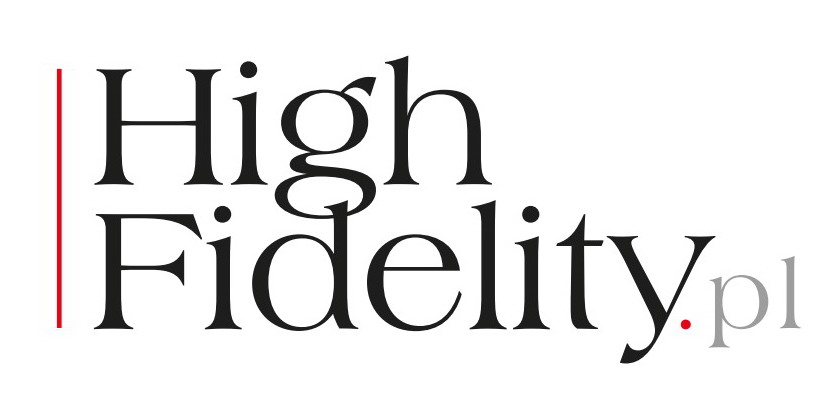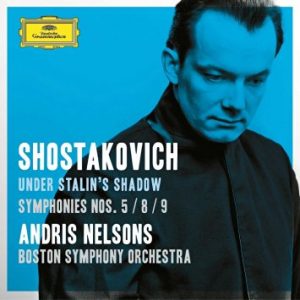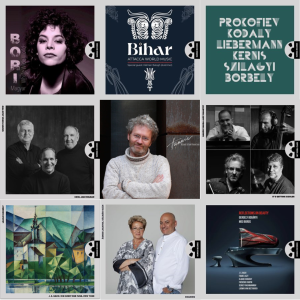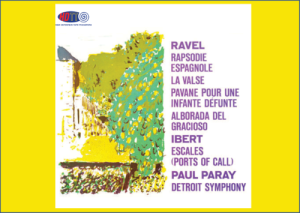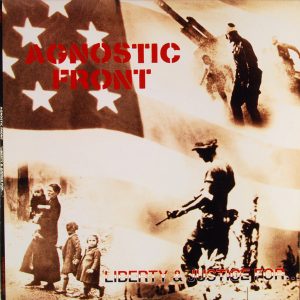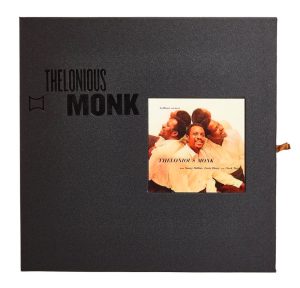I was that close to falling asleep while waiting for the final results of 17. International Chopin Competition that were presented after midnight. The list of awarded musicians was also quite surprising, as my favorite was Kate Liu, and I also keep my fingers crossed for Aimi Kobayashi from Japan. A bronze medal for an American pianist of Singapore origin managed to sweeten my disappointment but only a bit. But that's the story that repeats itself almost every time—results of this one the the biggest, most important competitions, usually surprise. So just to be clear with the facts let me remind you the list of winners:
I place (30 000 €) and gold medal went to SEONG-JIN CHO
II place (25 000 €) and silver medal went to CHARLES RICHARD-HAMELIN
III place (20 000 €) and bronze medal went to KATE LIU
IV place (15 000 €) - ERIC LU
V place (10 000 €) - YIKE (TONY) YANG
VI place (7000 €) - DMITRY SHISHKIN
DIANA KRALL ON A SCENE
I listened to most performance via radio live transmissions, and starting from the 3rd stage I followed all of them except the ones that collided with Diana Krall's concert in Warsaw Torwar Hall. Tuesday night three of us were coming back home from her concert. It seems that this artists sees herself as first of all a pianist and only secondly as vocalist—hence my mention of piano competition.
Krall let us all know in many different ways that her idol was Nat "King" Cole. She did it using music played before concert, also using stage scenography that brought to mind cabaret and revue from 1920ties and also just by telling us that. And Cole, although remembered by most as a voice singing Unforgettable was a jazz pianist, who also happened to sing. During the show microphone often seemed to be for Diana as annoying element as the long, blond hair and she moved both away quite often.
I mentioned hair on purpose—piano, vocal are one thing and the beauty is the other—one come along with the other really nicely. The Canadian looks fantastic and her photos from the session for Glad Rag Doll album have many fans around the world.
The performance was carried out in an absolutely amazing fashion but a group of professionals who really liked to play together and nicely followed a script of the show written by Anthony Willson, a guitarist and composer supporting Diana since 2001 in her live performances and studio recordings.
RECORDING OF DIANA KRALL
Ms. Krall was very luck from the very beginning of her career having right people working with her, also those who recorded her music. Tommy LiPuma produced her music from the very beginning and that a guy with a pair of very good ears. He's a former Senior Vice-President of Elektra Records, produced Natalie Cole album, created 7 platinum albums and won a Grammy Award. Between 1994 and 2011 LiPuma almost never left the GRP/Verve Records studios. Right at the start he met Diana Krall and led her to her success—he produced 12 albums with her, with When I Look In Your Eyes with over 2 million copies sold, and the next one, The Look of Love debuted in Billboard's Top 10 and sold in over 4 million copies. For the Live in Paris from 2002 LiPuma received his third Grammy Award.
In 2009 he retired. The Quiet Nights album was the last he did together with Krall. Glad Rag Doll, Diana's 11th studio album was produced by Diana Krall and T-Bone Burnett, and the latest one, Wallflower, by David Foster. It's also her 12th studio album, but her discography included also 3 concert albums and 3 DVD releases.
DIANA KRALL ON DIFFERENT RELEASES
LiPuma ensured high quality sound of Diana Krall's recordings, providing her with best sound engineers and trying not to "mess" with the sound too much. Her recordings used during audio shows around the world confirmed that his approach was the correct one, and Krall being a part of the mainstream music, recipient of Grammy Awards, constant presence in many radio stations protected her from being labeled (as Sara K. once was) as an "audiophile" artist. In her case though, sound quality is as important element of her image as music itself.
Another key role in her success was played by late Doug Sax, who mastered her recordings in Mastering Lab. Since the input material for her albums was that good it seemed a good idea to released it not only in a regular CD format but also in higher quality ones. And it did happen. Some albums were released as XRCD24 discs prepared by Mr. Kazuo Kiuchi in JVC studio (2 titles), on DVD-Audio (1 title), SACD (2), Blu-ray Audio (1), as well as on vinyl (Original Recordings Group; 6 albums). What's more, some of them are also available as Platinum SHM-CD (2), and the latest one, Wallflower on SHM-CD. Plus there are also 24/96 FLAC files.
FORMATS
Using fresh memories from a really good concert where Diana was singing in almost identical fashion as on her records, we decided to perform a comparison of different formats of her recordings. Below the list of what we actually had at our disposal:
WALLFLOWER
Compact Disc ("Foreign music—Polish price") vs SHM-CD
ALL FOR YOU
Compact Disc vs XRCD24
THE LOOK OF LOVE
SACD/CD (CD layer) vs XRCD24 vs FLAC 24/96
THE GIRL IN THE OTHER ROOM
Compact Disc (single "Temptation") vs SACD/CD (CD layer) vs Platinum SHM-CD vs FLAC 24/96
GLAD RAG DOLL
SHM-CD vs FLAC 24/96
COMPARISON
For our test we used Ayon Audio CD-T CD Transport and Aurender X100L music server—both delivering signal to Ayon Audio Stratos DAC. It was an A/B/A comparison with A and B known. From each album we chose one song, sometimes, if needed, also a second one. And one more thing—during these meeting we handed Justyna a certificate of Cracow Sonic Society membership.
WALLFLOWER
Compact Disc ("Foreign music—Polish price") vs SHM-CD
Marcin
In my opinion Japanese version does not "crush" other one. A difference is audible but not that big. SHM-CD offers smoother sound, with less irritable bass, it seems as if its creators did a bit more "polishing" of the material. To be honest I expected more significant difference. But if I was to choose version for me I'd chose SHM-CD.
Bartek
I liked SHM-CD more. Smoother sound, choir seemed to be closer, more palpable. Bass was getting on my nerves a bit—there was too much of it for my taste. But this version, in general, offered more elegant, smoother, more "orderly" performance. Every aspect, except for bass, gave SHM-CD advantage.
Tomek
No doubts —SHM-CD is better. It presented some inner-calm, bass wasn't that boomy like with Polish release. That's where I disagree with Bartek—bass didn't bother me at all. But differences between both releases were not that significant.
Wiktor
The SHM-CD offered more smooth sound, bass was less boomy and that's what makes it better choice for me. One can hear a higher quality "pressing", there is less unnecessary noise accompanying sound. On regular CD Diana Krall seemed too big. The differences between released weren't too big, though.
Rysiek B.
This time I can't really name obvious winner. For me these sounded like two totally different recordings, like they used different mastering—so I don't agree with you guys! CD offered better dynamics, better tonal differentiation, vocal sounded as if the microphone was placed very close. SHM-CD offered more musical sound, a bit like what we heard during concert from some distance. There were less details, it might have been even a bit boring.
ALL FOR YOU
Compact Disc vs XRCD24
Marcin
I preferred XRCD24—it sounded cleaner, clearer, more vibrant. This made it sound slightly harsher too. There was a big difference between these two releases.
Bartek
I chose XRCD24. And I have a theory now —with Wallflower differences were not significant because the recorded material was of much better quality. All… doesn't sound as good. XRCD24 offers higher dynamics and sounded much clearer—which is what I look for in music. On CD sibilant disturbed me a bit from time to time, and yet this version wasn't as open as the other one.
Tomek
I like XRCD24 more. Why? Because there was more of this vibe and depth that we witnessed during the concert few days ago. Also this strange noise was gone as well as sibilants. This is significantly better release.
Wiktor
For me the difference wasn't that big, although it was surely there. I chose XRCD24, that's a no-brainer. Although I think that if we used a different system for this comparison, choices might be different, because brighter sibilants on CD, and sort of reverb on vocal could make an impression.
Rysiek B.
The CD offered an artificial, studio sound. Flat, lacking musicality, annoying. XRCD24 delivered much better sound, music sounded much more live-like. For me the most important factor was that both direct sounds and their reflections were equally well differentiated, which CD version lacked.
THE LOOK OF LOVE
SACD/CD (CD layer) vs XRCD24 vs FLAC 24/96
Marcin
The hybrid disc sounded way to harsh, with exaggerated tonality, that's why I rejected this version. For me it was a battle between XRCD24 and FLAC file. File seemed more resolving, but on the other hand XRCD24 delivered more melodic, more enjoyable sound. Both are equally good and a momentary choice would depend on a momentary mood.
Bartek
The Hybrid offered worst sound—flat, uninvolving. File offered brightest sound of them all. But I can't really chose between XRCD24 and file.
Tomek
I don't think that differences between both CDs were significant. But, for me, a difference between XRCD24 and a file was huge. I my opinion file lacked some richness, density. Although it has some advantages too like very natural vocal that reminded me of what I heard during concert few days back. I also can’t really pick one preferred version.
Wiktor
I immediately counted hybrid disc out. It lacked details, substance. There were some, although rather small differences between XRCD24 and file. File offered more details, they were presented in a more distinct way. But on the other hand dynamics was surely better on XRCD24. I won't be original when I say that I also can't choose the best version.
Rysiek B.
In my opinion this is the album with highest recording quality so far. I liked SACD and XRCD24 equally despite the fact that until recently I simply did not accept hybrid SACD/CDs. As for the file I also noticed lesser dynamics, but I'd also say the whole presentation was "flat" and uninvolving.
THE GIRL IN THE OTHER ROOM
Compact Disc (single "Temptation") vs SACD/CD (CD layer) vs Platinum SHM-CD vs FLAC 24/96
Marcin
The CD (single) sounded worst. Too much treble, definitely too little bass. No doubts the Platinum sounded best! Third place goes to 24/96 file and second to hybrid.
Bartek
Quality of this recording isn't surely that good. And still Platinum simply destroys all other versions beyond any doubt. File sounded flat and with too much bass. On the other hand it presented better treble than CD and hybrid. I was surprised by how coherent hybrid was—it also offered more bass than CD but it still sounded good. But again —Platinum crushed them all.
Tomek
For me the order (from the best to the worst) is as follows: Platinum—file—CD—hybrid. Hybrid lacked nuances that even CD offered. But I agree—Platinum did crush them all. It offered smoother, involving, nicer sound. It transforms not so good (I mean the music on it) album into truly immersive experience. Good sound quality offered by a file surprised me, especially its dynamics, although it was slightly "turned up". For less experienced listeners file might be the most attractive version.
Wiktor
I liked CD version—it offered a decent sound. Hybrid was like taking a step back. Less details and sound seemed matt in comparison. Platinum on the other hand was a huge step forward! There was so much information in this version that I could hardly imagine that there could be even more. This was a clear winner. File offered same quality as hybrid, so both occupied third place, as second went to CD.
Rysiek B.
I have to agree with Marcin, and not with Wiktor: CD version was the worst beyond any doubt. Surprisingly again the hybrid version sounded very well. But Platinum surpassed them all with its sound quality—I was totally immersed in music, tapping the rhythm with my feet. File sounded much better than in previous comparisons with quality on pair with hybrid, despite the fact the these two offered different sound character.
GLAD RAG DOLL
SHM-CD vs FLAC 24/96
Marcin
I had to repeat listening to both versions to find out that SHM-CD was better after all. These recordings offer quit unusual sound, I mean having certain style, so at first it is not easy to realize what is really important in it. Anyway the differences are not big. SHM-CD offered better dynamics, spacing, instruments very really breathing—that's what file version lacked.
Bartek
I choose SHM-CD, although differences were not big. Disc offered more distinct, more precise presentation which better fulfilled my expectations.
Tomek
I definitely choose SHM-CD. After the concert in Torwar I realize that this music is, among other things, about large dynamic contrasts between fragments with Diana playing very quietly and those when she hit keys with power. CD offered me a concert-like experience—musicians played loud and than quietly, and sometimes something in between. File delivered flat sound, a bit "nervous" which annoyed me as I knew it shouldn't have sounded like that!
Wiktor
This time differences were quit significant. With SHM-CD one could clearly hear this "convention" chosen for this album, it was easy to accept it, to feel it. File simply didn't sound right. For me the difference between the two was probably the biggest we heard today and it was the worst file we heard today.
Rysiek B.
Both: producer and sound engineer should be sent to prison—I completely don't get this specific "convention" they chose. Whatever they actually wanted to achieve the result is very poor. I haven't heard such a "mess" in any recording for years. I'd like to warn everybody not to buy this album, despite the fact it is one of Tomek's favorites…
SUMMARY
Marcin
There were two things that surprised me most during this listening session. First involves Wallflower and a very small difference between SHM-CD and the cheap version "Foreign music—Polish price" both from Empik. The second surprise—there was no case when a Hi-Res file sounded better than a disc. I mean yes, in some cases file was better than one of the disc editions, but there was always another disc that was clearly better than file.
Bartek
Diana Krall's albums, although often offering really interesting, good music, not always come with high sound quality. For a one remarkable album (like the latest Wallflower) there are 2-3 offering mediocre sound quality (at best). But the sound quality is never too bad for a fantastic release not to be able to fix at least some problems with it. The best proof for this claim are the Platinum SHM-CD releases. Any other versions of the same album when confronted with Platinum SHM-CD become unbearable. Also other special releases like "regular" SHM-CD or XRCD24 offer some improvements in sound quality. Also Hi-Res files usually deliver better quality than standard CD, no matter whether it comes from Europe or USA. File might sound a bit brighter and have some inherent issues of this format but still they sound more "truthfully", they are more detailed and simply more enjoyable.
Tomek
This session inspired by the Warsaw concert of Diana Krall proved once again that one should invest in Japanese releases, obviously not because of their prices but because of sonic advantages. The Platinum SHM-CD is an indisputable winner of tonight's comparison, as it delivered an unparalleled realism and dynamics (despite the fact that this disc was obviously recorded at lower volume level and we did not adjust volume for it).
I also have to admit the Hi-Res files surprised me tonight and it was a very positive surprise. I even heard some positive comments from colleagues here who had probably never said a good word about files before—this means a lot. There was also a negative surprise (for me I mean)—it was a complete lack of understanding of the concept of the Glad Rag Doll album by some participants. On the other hand I have to admit that it took me half a year before I fully understood it and started to like it a lot.
Wiktor
Comparing different Diana Krall recordings using a reference system surprised me with a small scale of differences between tested releases/formats. Only the Platinum version clearly outperformed all the rest clearly proving that improvement of sound quality is still possible, as some formats are able to deliver even more information about recordings than the others. The standard CD version are still doing a good job and in my opinion for many mid-class audio systems it might be the dominant format for many years to come.
Opinions about files quality very quite diversified, which in part might be explained with prejudice towards this format. To be clear, I'm one of those who would never sacrifice even little sound quality for the convenience of using audio files. Obviously one needs a certain level of system's performance to properly assess these, sometimes quite small, differences "Hit of the night" was surely Platinum SHM-CD, absolutely worth every penny one has to pay for it. All other formats fall far behind in terms of sound quality.
Text: Wojciech Pacuła
Images: Wojciech Pacuła
Translation: Marek Dyba









